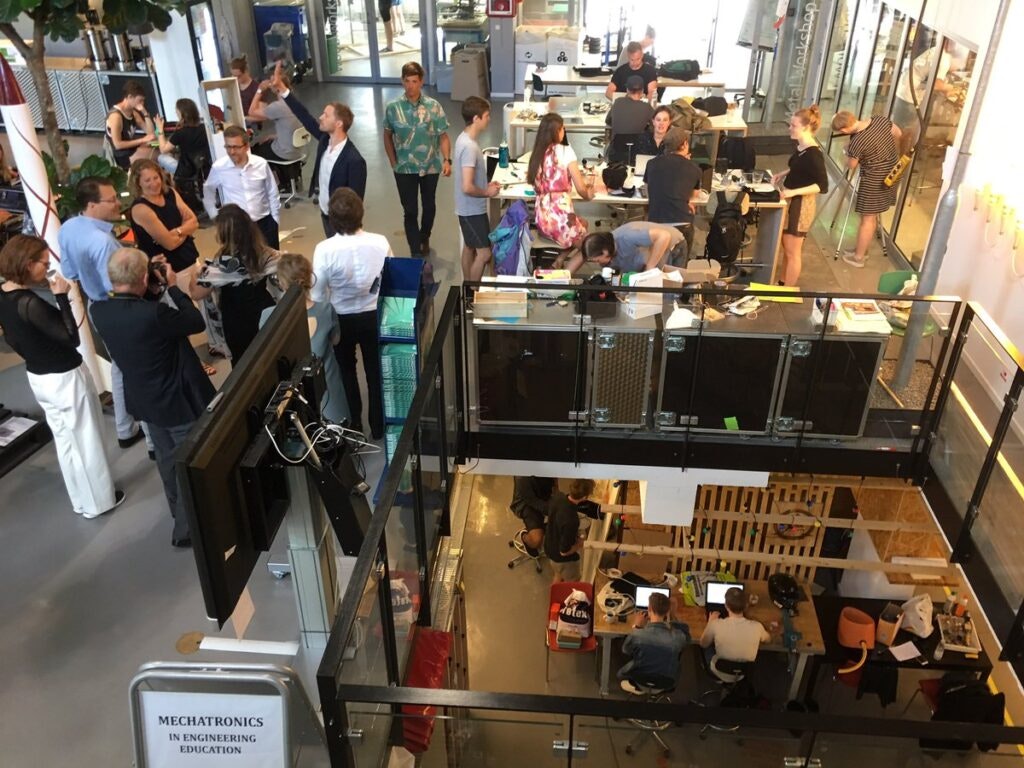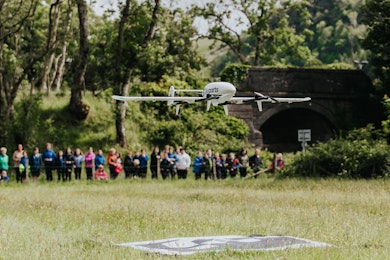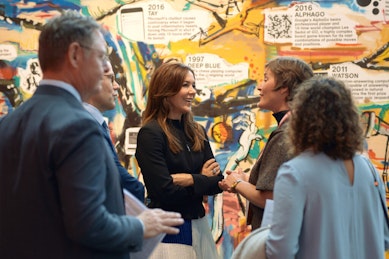Students must consider ethics before technology
When DTU Skylab Digital helps a company or technology to market, ethics must be part of the foundation. Students at DTU must think about how their technology and business can support societal values.

While both the EU and big tech giants discuss ethics, artificial intelligence, and big visions for data and technology in the community, DTU Skylab Digital is working every day to develop concrete solutions. The Digital lab is a gathering place for digital technologies and knowledge and is the latest edition to DTU Skylab, DTU’s innovation hub at the University.
DTU Skylab Digital is run by a partnership across four universities in Copenhagen: IT University of Copenhagen, Copenhagen University, Copenhagen Business School and Technical University of Denmark (DTU). The purpose is to create a knowledge hub for digital entrepreneurship and innovation, focusing on AI, IoT, and Blockchain. As part of the greater DTU Skylab, the goal is to create a creative focal point for researchers, students and businesses working with digital technologies. An important focus is a concept of “Safe AI”, where developers work to ensure that data use and new solutions benefit the community
Focus on the community
DTU Skylab also encompasses several startup programs where startups are nurtured on their way out into the world as fully-fledged businesses.
Diana Lundgren, who heads up DTU Skylab Digital, says that “We work very socially with our technologies. Ethics may be challenging to define, but for us, it is about ensuring that technology is relevant for society. Ethics in AI can be compared to sustainability or health. It’s about having some norms, some values our projects must adhere to. “
While this project of building a multidisciplinary knowledge hub in digital entrepreneurship and innovation is still relatively new, data ethics and technology research at DTU is well established. Especially through the research program at the University’s Department of Applied Mathematics and Computer Science, DTU Compute.
At DTU Skylab Digital, however, the challenge is more down to earth: here, theories and visions must be translated into actual practices within digital innovation projects and startups.
Changing all the time
“It’s always a work in progress. We work to integrate ethics every time we guide and advise students. We want to ensure that the projects do not go against democratic values and are developed for the good of society. AI must support transparency, equality, and privacy. It is our role as a university to provide that dimension in our work,” Lundgren says.
In recent years there have been countless cases where ethics have been challenged. Technologies such as facial recognition, AI, biometrics, social media, manipulation, and fake news continuously find themselves the cause of scandal, fostering distrust of the digital world.
Advancements in AI have the potential to deepen this distrust. Therefore, DTU Skylab Digital insists students consider ethics and ethical issues as part of their professional DNA.
Lundgren hopes that students will continue to take this ethical approach even after a startup exits the University’s framework and begins to grapple with the market’s demands for earnings.
“It is imperative that we, as an organisation and innovation hub, contribute to a culture of ensuring that the things you work with are for the benefit of society and do no harm. I believe that as a university, we have a great responsibility in helping to inform and ensure that digitalisation is done on an ethical basis,” Lundgren states.
Safe AI for the Future
AI, and the concept of Safe AI, are both reasonably new phenomena in practice and companies in both Denmark and abroad continue to discover and explore the ways machine learning and AI can be used in everyday life.
At the EU level, Commissioner Margrethe Vestager presented an EU White Paper focused on artificial intelligence in February. The document emphasises that AI must be promoted within the EU, while simultaneously being ethical and transparent so that citizens can see what is going on.
The White Paper’s suggestions are in 12 weeks of consultation, but the paper’s fundamental concepts are close to what Lundgren explains:
“Our role is important because we work practically with issues and dilemmas. It’s about having users in mind and using their skills to help others with their solutions, a mindset that we, fortunately, share with the vast majority of students we meet.”
AI is expected to develop tremendously in the coming years, with work already underway to apply it to the green transition, to solve congestion problems and to discover disease patterns better than we can today.
DTU has been instrumental in creating the so-called ‘AI promise’ – several important principles for Safe AI, where Skylab Digital guides students in working specifically with the principles when making innovation and startups









